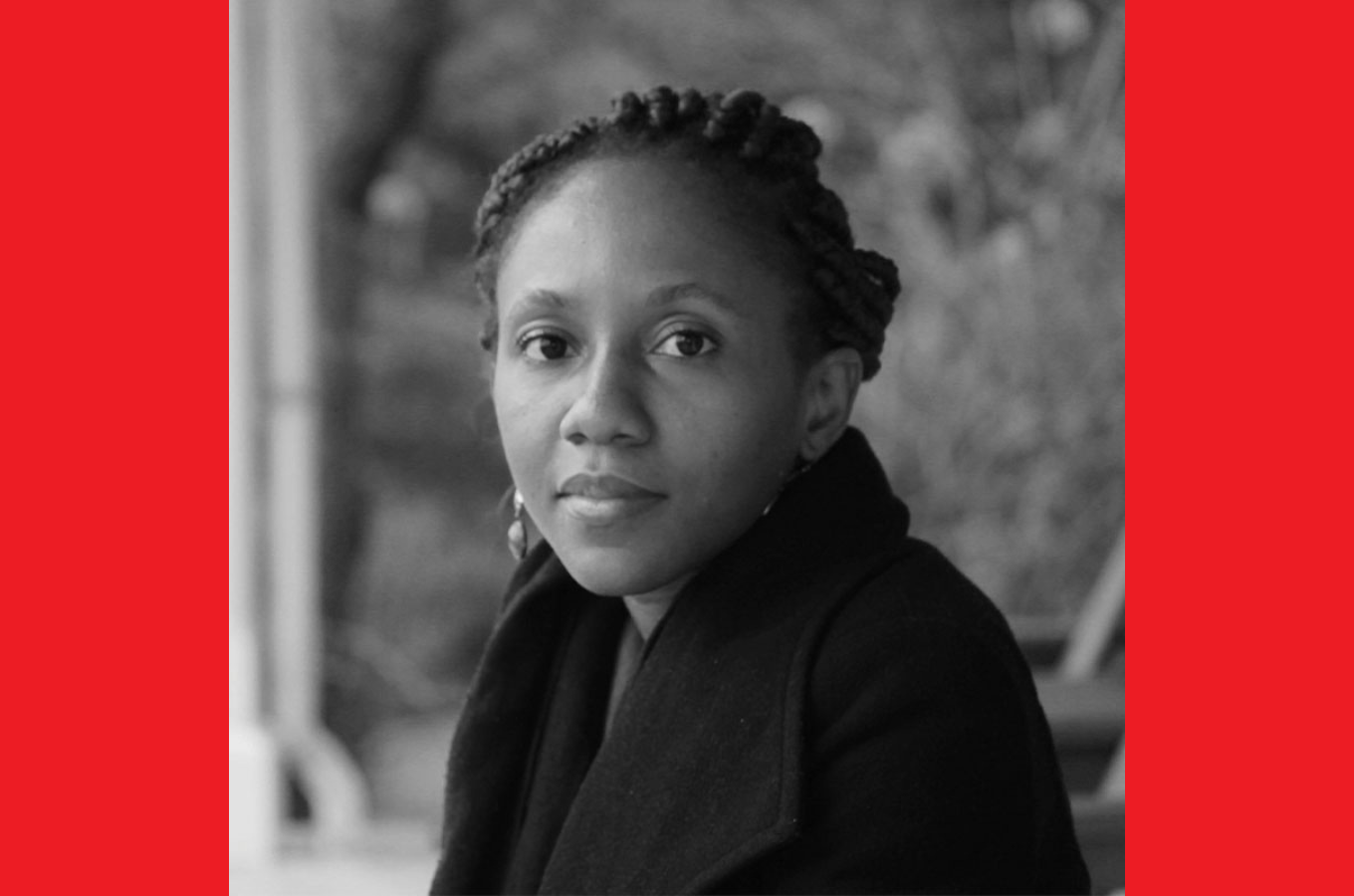
Uche Okonkwo’s “Animals” is an unusual love story about the forms desire can take and how we live through conflicting emotions. In this story, a child’s relationship with a chicken reveals a lot about the kind of relationship that exists in his family. Okonkwo’s characters have a nearly chaotic family life, but this chaos is tender, and beautifully rendered. Even after the reading experience, the image of a family at once united and detached by their avowal and denial of desire remains.
Okonkwo’s stories have been published in A Public Space, One Story, Kenyon Review, Ploughshares, The Best American Nonrequired Reading 2019, and Lagos Noir, among others. A former Bernard O’Keefe Scholar at Bread Loaf Writers’ Conference and resident at Art Omi, she is a recipient of the George Bennett Fellowship at Phillips Exeter Academy and a Steinbeck Fellowship. Okonkwo grew up in Lagos, Nigeria, and is currently pursuing a creative writing PhD at the University of Nebraska-Lincoln. “Animals” is from Okonkwo’s recent story collection, A Kind of Madness, published by Tin House in April. In this conversation, Uche and I talk about the inspiration and aspiration of “Animals.”
***
Darlington Chibueze Anuonye
Uche, isn’t it wonderful how the presence of a chicken could unravel the love life of a family?
Uche Okonkwo
It is. But I would say that the unraveling had been happening already, before the chicken showed up. Otuanya merely escalated things.
Darlington Chibueze Anuonye
My family owned a goat when I was a kid. Anges was her name. Agnes delivered her first set of kids during the 1996 Olympics games at exactly the moment Nigeria scored the third goal that gave us victory over Argentina. Imagine the memories I relived when Nedu named the chicken Otuanya because the bird had lost an eye. His sympathy for and friendship with the bird was so great his mother delayed killing the animal for several days. It appears that shared experiences facilitate sympathy, as Nedu’s response shows, “Nedu had once had a boil on his left eyelid so big that he couldn’t open it for days. His heart went out to the bird.” What is in a story that we so readily see parts of ourselves in it?
Uche Okonkwo
I think the best stories have something for everyone. I feel very lucky that “Animals” came into being the way that it did. I had fun writing it, and it has been such a gratifying experience hearing from readers who connected with the story. I’ve heard similar stories from people of different backgrounds—including friends and strangers at book readings—about the animals in their own childhoods that they had bonded with, only to realize, too late, that these animals were meant to be eaten. These experiences have lived in their memories, just as my own memories have stayed with me all these years. It feels important to be able to have these connections with people, some of whom I probably will never hear from personally. I think this is one of the things stories help us accomplish as humans, that sense of connection.
Darlington Chibueze Anuonye
When Nedu’s father Ebube killed Otuanya to prove his masculinity to Uzoma his wife, I thought of Okonkwo’s role in Ikemfeuna’s death in Chinua Achebe’s Things Fall Apart. Do you remember Ezeudu’s advice to Okonkwo? “That boy calls you father. Do not bear any hand in his death.” Yet, Okonkwo killed Ikemefuna because he did not want to be considered a weak man by his clan. I read this sentence three times—the tenderness and hope and wisdom are moving: “It made sense: if you gave a thing a name, you couldn’t turn around and eat it as food. And so after Nedu performed the ceremony, and the third and fourth and fifth days of Otuanya’s life passed uninterrupted, he let his heart settle.” How do you apprehend this moral burden?
Uche Okonkwo
I love this connection you make to Ikemefuna’s death scene which, in my opinion, is one of the most impactful moments in the entire novel. I would never have thought of this connection myself. One of the things I enjoy about writing child characters is that I get to play with the simple profundity—you called it “wisdom” and I agree—of child logic. I think that child characters often present a great opportunity to critique the lives and concerns of adults, our many hangups and hypocrisies. That’s a big part of why I am drawn to them. There’s also something nostalgic about writing child characters; I sometimes feel a longing to go back to a time when things appeared as simple as “if you name a chicken, you can’t eat it as food.” As a writer, I think I’m better at asking questions than answering them, and so the story doesn’t provide easy answers—at least I don’t think it does—just a bunch of lingering questions.
Darlington Chibueze Anuonye
Ebube is perhaps even closer to Okonkwo’s father Unoka in his nontraditional masculinity. Ebube is calm, friendly to his children, and desirous of his wife’s attention. Uzoma is the temperamental spouse and mother. The images of the absent, macho, unfeeling husband and father, and the subservient, sacrificial, maternal mother are so recurrent in African writing that it is refreshing to find these versions of masculinity and femininity that oppose, perhaps without trying to do so, the dominant traditional views around gender, marriage and parenting, at least in Nigeria. What inspired your depiction of these characters?
Uche Okonkwo
Much of the inspiration for Uzoma and Ebube comes from the idea that “opposites attract.” I was thinking about how that dynamic can relate to couples, and how children might experience these significant differences in their parents’ personalities and parenting styles. What happens after the initial attraction that brings the opposites together? Who pulls away first? What happens when children clearly gravitate more towards one member of the couple? How does it feel to see oneself as the less loved parent? How does one navigate feelings of loneliness and alienation within one’s own family. Also, playing with gender roles can be a lot of fun. I enjoyed working with the contrasts that Uzoma and Ebube represent.
Darlington Chibueze Anuonye
Women are sometimes enablers of patriarchal views about gender. Did it worry you that Uzoma’s sexual fantasies about the police officer who violated her and her family, as well as her expectations of toxic traits from Ebube, affected her sexual life with her husband? Isn’t it fascinating, this unusual attraction a victim has for her abuser?
Uche Okonkwo
I think it’s a common human experience to be attracted to things that aren’t necessarily good for us. But Uzoma’s fixation on the police officer seems to me to be a manifestation of her inability—maybe unwillingness—to communicate her sexual needs. In a world that often shames women for expressing anything other than a stoic, reluctant acceptance of sex, it can be a vulnerable experience to try to share one’s desires. A woman like Uzoma would be reluctant to admit, even to her husband—maybe especially to her husband—that she has needs. In the same way that she cannot show her hurt when her children leave her out of their playful moments, she cannot share with Ebube what’s going on with her.
Darlington Chibueze Anuonye
I hear the quiet voice of desire loudly in “Animals.” This voice transforms this story from a domestic narrative to a sensual experience. How do we translate the sensations and palpitations Cherish feels whenever she thinks of Afolabi?
Uche Okonkwo
She is a teenager becoming aware of her own burgeoning sexuality. I think lots of people remember the excitement and awkwardness and confusion of their first crushes. Cherish is in the thick of that experience, and she acts as would be expected.
Darlington Chibueze Anuonye
I’ve heard that silent voice before, in Chimamanda Ngozi Adichie’s Purple Hibiscus, when Kambili talks about or comes close to Father Amadi. It is full of wild innocence, guided curiosity and unconscious hope. You know, I was worried that Cherish couldn’t discuss her desires with her mother because of her fear that she would not listen. So, how do we fully account for the sensuality of young people in an environment like Nigeria—an overly moralistic society—where matters of desire are often culturally muted?
Uche Okonkwo
I think it’s normal for teenagers to pull away from their parents at that age, but it is also true that the sensuality of young people isn’t something that’s given much space in a moralistic society, almost like we believe that if we don’t talk about something then it doesn’t exist. I think that this culture of silence around young people’s sexual lives and sexual health can lead to a knowledge gap that ends up being a problem. I think about all the horror stories that were—and maybe still are—told to young people about menstruation, for example. Such stories can be funny in retrospect, but they aren’t particularly helpful for the child trying to navigate hormones and bodily changes and all the added challenges that come with growing up.
***



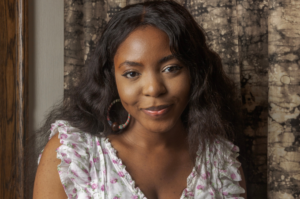
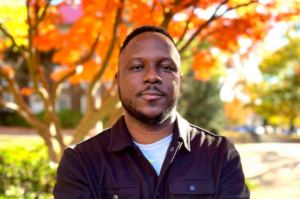
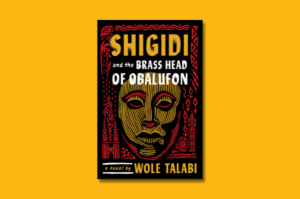


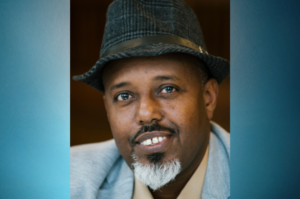

COMMENTS -
Reader Interactions